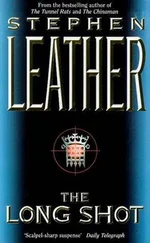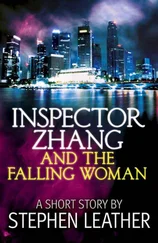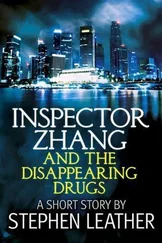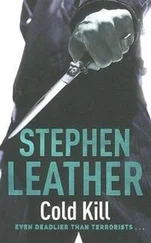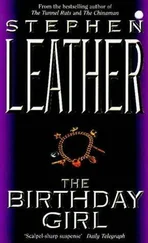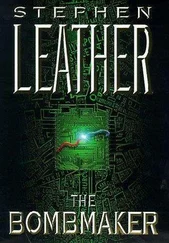Van der Sandt nodded grimly. ‘I understand.’ He stared out of the window with unseeing eyes.
The local mortuary could only hold six bodies, so the gymnasium of a local school had been commandeered for the victims of the attack. There were two armed policemen guarding the door but they both recognised Konuk and he and Van der Sandt were waved through.
The corpses had been placed on trestle tables and covered with white sheets. Any belongings had been put in cardboard boxes underneath the tables, with a handwritten number on them.
Portable cooling units had been brought in to keep the temperature down but they were struggling and the air was cool rather than cold.
There were only three forensic specialists in the room, wearing white overalls and blue shoe covers, and they were using old-fashioned ink and paper to collect fingerprints from the dead. Van der Sandt frowned when he saw what they were doing. ‘They don’t have an electronic system?’ he asked.
Konuk shook his head. ‘This is Northern Cyprus,’ he said. ‘And the DNA samples they are taking will take weeks to be analysed. They will have to be sent to a lab in Istanbul. But identification won’t be a problem; all the victims were guests at the hotel. They are going through the motions.’
He took Van der Sandt to the middle of the room and stood next to a sheet-covered body. ‘This is your wife, Mr Van der Sandt,’ he said. ‘I am so sorry.’
Underneath the table was a cardboard box with the number 39 on it. ‘What is the significance of the number?’ Van der Sandt asked.
‘It’s just a number they were given at the scene,’ said Konuk. ‘Anything they had on them was placed in the box.’
Van der Sandt bent down and took out the box. There was an iPhone, a pair of Gucci sunglasses, a Lee Child novel and a bottle of sunscreen. He recognised the phone and the sunglasses. He put the box back on the floor. ‘There is no need to identify your wife’s body, Mr Van der Sandt,’ said Konuk.
‘I need to see her,’ said Van der Sandt. He pulled back the sheet. His wife’s eyes were closed and she looked as if she was sleeping. The bullets must have hit her body. He bent down and kissed her on the forehead. ‘They’ll pay for this, honey,’ he whispered. ‘I swear.’
He straightened up. The body on the next table was smaller and the number on the cardboard box was 40. There was an iPad in the box with a Pokémon cover. His son’s. Van der Sandt’s stomach lurched and for a few seconds he went weak at the knees. Then he pulled back the sheet. Karl’s eyes were open and his teeth were bared in an animal snarl. Van der Sandt had seen the look before on the face of a lion that he had killed and he gritted his teeth. Karl was seven. Seven years old, his whole life ahead of him. Why would anyone kill a seven-year-old boy? His hand began to tremble and he fought to control himself. Had Karl been facing his killers when he died? Or had he been shot in the back, fleeing for his life? Van der Sandt was sure that Karl’s first instinct would have been to protect his mother and his sisters. He knew that if he pulled the sheet back he’d be able to see if his son had been shot in the front or the back, but he let it fall back over the boy’s face. Better not to know.
He could tell by the shape under the sheet on the next table that it was Lucy. Van der Sandt ran a hand over his face. Tears were pricking his eyes but he blinked them away. Tears served no purpose. He flinched as he felt Konuk grip his elbow. ‘Mr Van der Sandt, please. Can I suggest you don’t look at your elder daughter. She was in the water when the attack occurred, she was very close …’ Konuk stopped speaking and let go of Van der Sandt’s arm.
Van der Sandt turned to look at him. ‘Thank you for your concern,’ he said coldly.
‘It’s just, I think, you know, you’d want to remember your daughter the way she was, not the way …’ Konuk dried up again and looked away, embarrassed.
Van der Sandt reached for the sheet that covered his darling Lucy, but then he stopped. Konuk was right. If he lifted the sheet and looked at her, it would be the last image he had and it would be an image he would never forget. He kissed his fingertips and placed them on the sheet, then walked over to the final table. The box had 42 written on it and inside there was an iPad with headphones attached, an iPhone, a pink scrunchie, and a small toy elephant that he’d given Sophie when he got back from his last hunting trip in Africa. He picked up the elephant and held it against his cheek, then sniffed it, hoping to pick up her scent, but all he could smell was the sea.
He slowly drew back the sheet. Sophie looked at peace, like her mother, and that gave him some consolation. Hopefully it would have been quick. She was small so she would have bled out quickly, and at least she had been with her mother. It was a small consolation, minuscule, but at the moment it was all he had. He took the toy elephant, tucked it next to her neck, and covered her up again.
He turned to face Konuk. ‘I need to take my family back to the States,’ he said.
Anyone but Konuk would have pointed out that the bodies were part of an ongoing investigation and that there was no way the police would release them, but Konuk was a man who solved problems, rather than described them. ‘Of course,’ he said.
‘No matter what it costs, pay whoever needs to be paid and have the bodies delivered to the airport as soon as possible.’
‘I will get that done, Mr Van der Sandt.’
Van der Sandt patted him on the shoulder. ‘Thank you,’ he said.
Konuk bowed his head in acknowledgement, but said nothing.
CHAPTER 6
The eight men were sitting cross-legged on carpets in a large tent that was open at the sides to allow what breeze there was to blow through. They were sitting in a circle around a dozen or so plates of food. It was simple fare – kebabs, hummus, mashed eggplant, green beans, stuffed vine leaves, and Arabic bread – and there were jugs of water and watermelon juice.
‘Why can’t we eat?’ asked one of the men. His name was Jaffar Dawood and he had a north-of-England accent. During the attack on the holidaymakers in Cyprus he had been wearing a T-shirt and shorts, but now he was wearing a plain white kaftan.
‘We must wait for the imam,’ said the oldest man in the group. His name was Faaz Mahmud. He had a Finnish accent, though he spoke fluent Bengali, the result of having parents from Bangladesh. He was in his forties with a greying beard, and was wearing wire-framed spectacles with circular lenses, and a long tunic over baggy trousers. ‘It would be disrespectful to begin eating before he arrives.’
Erol Nazzar – who like Jaffar had been born in Bradford – looked at his wristwatch, a cheap black Casio. He was clearly eager to eat but held his tongue. The other men also kept quiet. They were all tired. Immediately following the attack on the resort they had fled on their jet skis around the bay to a beach, where a speedboat was waiting for them. The speedboat had taken them out to sea where they had transferred to a small Syrian freighter. They had hidden in a compartment in the hold, barely big enough for all eight of them. They had been given bottles of water but no food.
It had been dark when they had arrived at Latakia, Syria’s main port. The area was under Russian control and the port was close to Khmeimim Air Base, where the Russians had an electronic eavesdropping facility. The men were hustled off the freighter and into a truck, this time into a secret compartment behind boxes of olive oil.
A local driver had driven them through areas controlled by Russian and Syrian troops, then reached ISIS-controlled territory where the truck had headed into the hills. The jihadists had remained in their cramped hiding place until the truck had driven into a compound, a collection of concrete buildings, wooden shacks, and tents. They had climbed out of the truck and had been taken to a concrete shower block where they had showered and changed into clean clothes, before joining the rest of the camp for morning prayers.
Читать дальше



